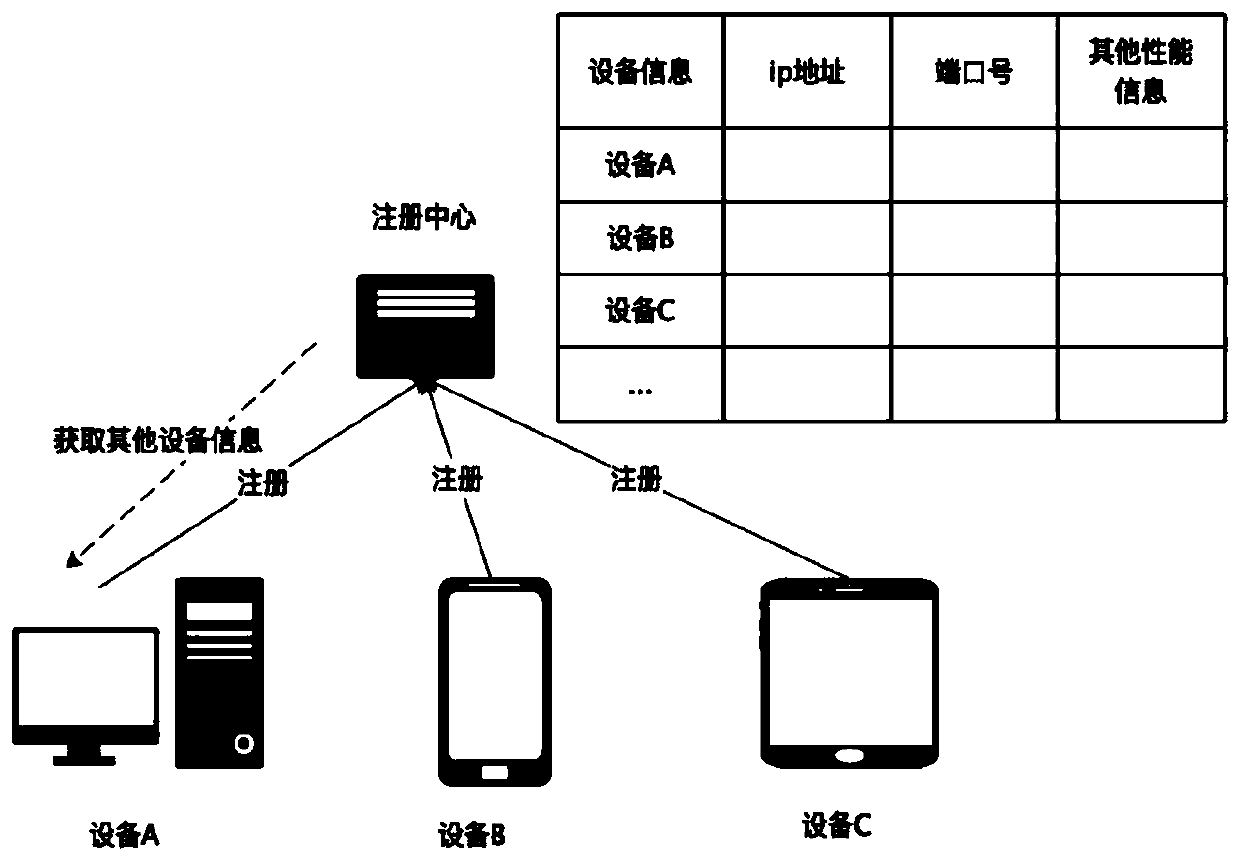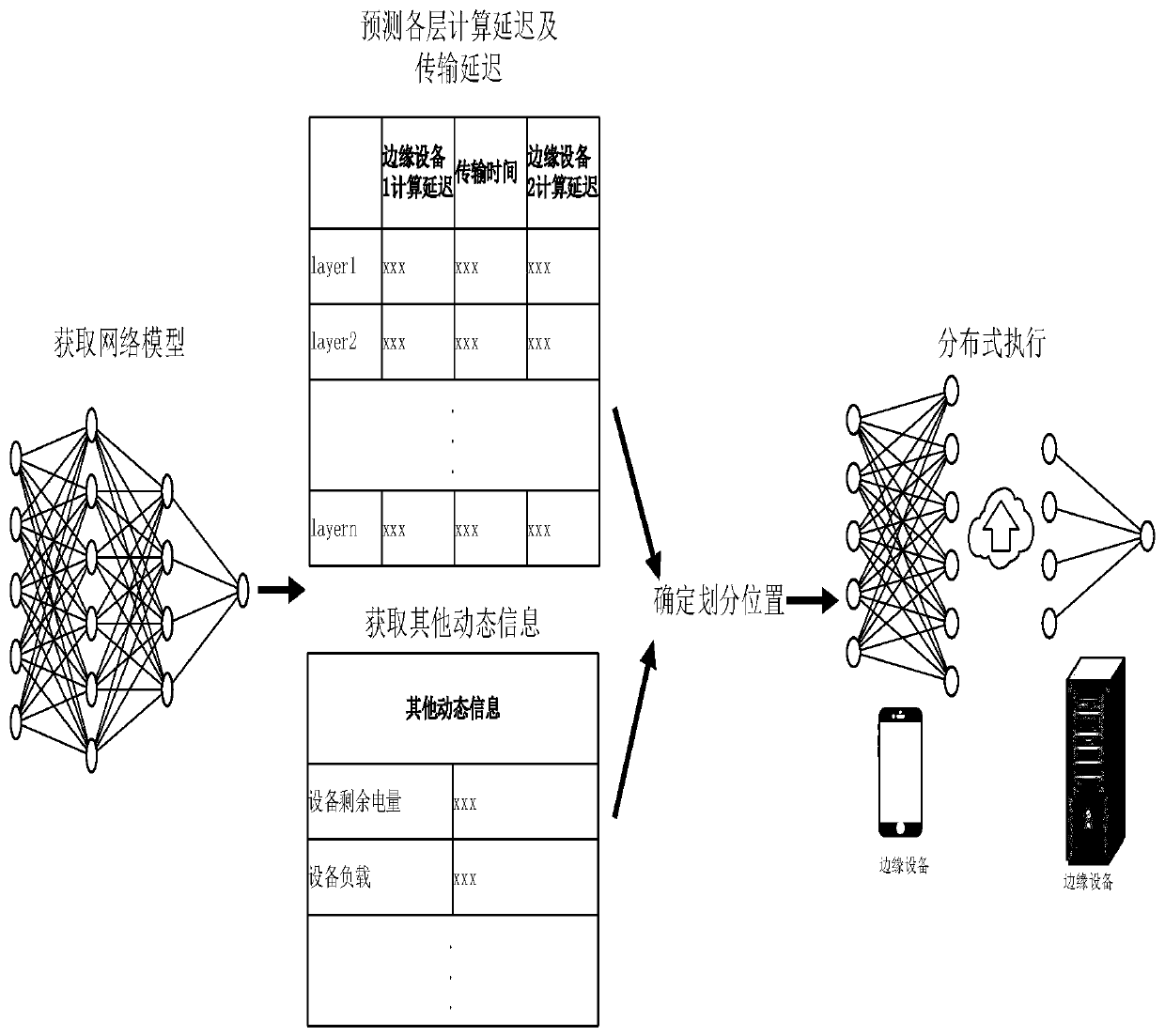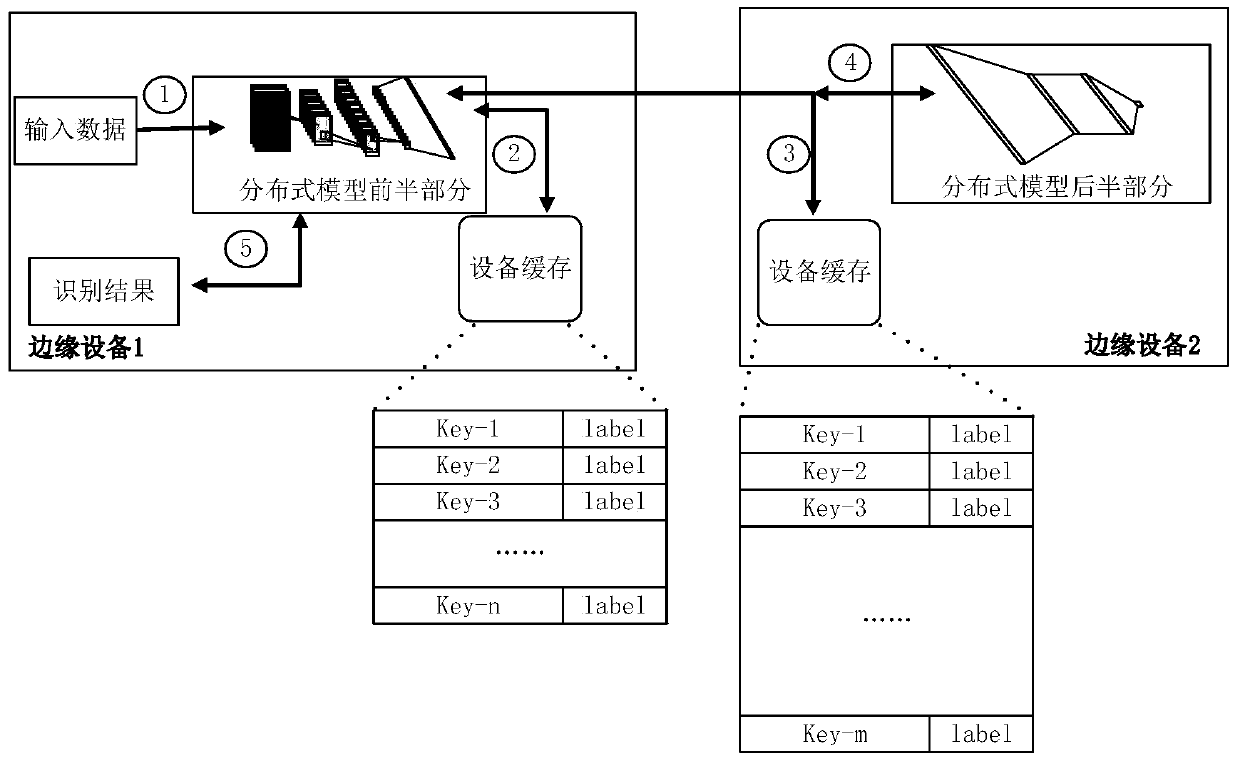Collaborative deep learning reasoning method for decentralized equipment
A deep learning and device technology, applied in the field of artificial intelligence and edge computing, can solve the problems of not making full use of edge devices, not taking into account the similarity or duplication of input data of edge devices, etc., so as to reduce model complexity and reduce the size of intermediate results. Effect
- Summary
- Abstract
- Description
- Claims
- Application Information
AI Technical Summary
Problems solved by technology
Method used
Image
Examples
Embodiment Construction
[0016] The present invention mainly has two steps: the step of selecting the distributed equipment, and the step of calculating the distributed neural network based on cache.
[0017] Decentralized Equipment Selection
[0018] Since the edge scene devices are generally heterogeneous, that is, there are different computing performance, network performance, and storage performance, it is necessary to select a reasonable cooperation device before initiating a collaborative intelligent computing task. Since the edge scene is generally a non-center model, each Each device can be used as a task initiation device or a task collaboration device. Such as figure 1 As shown, in order to let other devices know their existence, each device will register its own IP address, port number and other device performance information in the registration center, and establish a stable connection under the condition of ensuring network reliability. The task initiating device obtains other device in...
PUM
 Login to View More
Login to View More Abstract
Description
Claims
Application Information
 Login to View More
Login to View More - R&D
- Intellectual Property
- Life Sciences
- Materials
- Tech Scout
- Unparalleled Data Quality
- Higher Quality Content
- 60% Fewer Hallucinations
Browse by: Latest US Patents, China's latest patents, Technical Efficacy Thesaurus, Application Domain, Technology Topic, Popular Technical Reports.
© 2025 PatSnap. All rights reserved.Legal|Privacy policy|Modern Slavery Act Transparency Statement|Sitemap|About US| Contact US: help@patsnap.com



